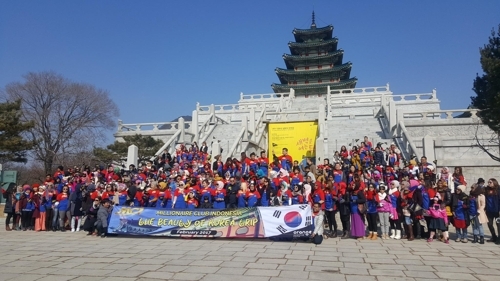The South Korean government plans to bolster efforts to lure more tourists from Muslim countries, its tourism body said Monday, to cope with a drop in visitors from China in the wake of a diplomatic row with Beijing over South Korea's plans to deploy an advanced US missile defense system on its soil.
Asia's fourth-largest economy has seen the number of Chinese travelers, who make up nearly half of inbound foreigners, decline rapidly and is feared that the loss will widen, since Beijing ordered travel agencies early this month to stop selling tours to South Korea.

(Yonhap)
China's move is seen as part of a string of measures taken against its neighbor in what appears to be retaliation for Seoul's stationing of the Terminal High Altitude Area Defense system.
Beijing has strongly opposed the move, saying that its powerful radar will be used to spy on its military.
To brace for the fallout, the Korea Tourism Organization will adopt various ways to improve tourism services for Muslims, aiming to secure 1.2 million inbound visitors from Southeast Asia and the Middle East for this year, the organization said in a statement.
Under the envisioned theme of "Muslim Friendly Korea," the KTO plans to encourage restaurants to gain an accreditation for providing halal foods, which will then be promoted through KTO's tourism guide.
The organization will also attend tourism exhibitions in Kazakhstan in late April and other similar events that will be held in Malaysia and Indonesia in the latter half of this year, seeking to promote and introduce South Korea to Muslim communities, it said.
In September, the KTO plans to launch a week-long halal fest for Muslim travelers, during which an assortment of local foods made in accordance with halal rules will be introduced to the visitors as a way to promote local cuisines and culture, it added.
In 2016, some 980,000 Muslim tourists came to Korea on a trip, up 33 percent from a year earlier. (Yonhap)






